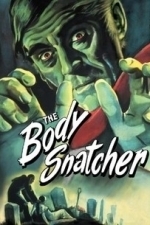Search
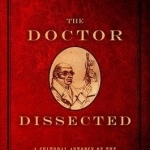
The Doctor Dissected: A Cultural Autopsy of the Burke and Hare Murders
Book
A series of bizarre disappearances filled the citizens of early nineteenth-century Scotland with...
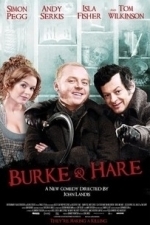
Burke & Hare (2010)
Movie
In 19th century Scotland, grave robbers William Burke and William Hare start murdering people for...
Burke and Hare murders Serial killers Black comedy Dark comedy
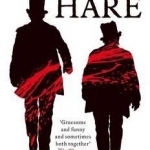
Burke and Hare
Book
In a boarding house in West Port, an old army pensioner dies of natural causes. He owes the landlord...
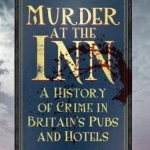
Murder at the Inn: A History of Crime in Britain's Pubs and Hotels
Book
In which pub was the notorious murder that led to the Kray twins becoming Britain's most feared...
Matthew Krueger (10051 KP) rated The Body Snatcher (1945) in Movies
Oct 17, 2020
Boris Karloff (1 more)
Bela Lugosi
Invasion
The Body Snatcher- is not related to "The Body Snatchers". Yes it is confused. Cause i thought this was the oringal version of "Invasion of the Body Snatchers", just called "The Body Snatcher". Nope it turns out its two different things. Both based off of books. This film is based off of "The Body Snatcher" by Robert Louis Stevenson. While "Invasion of the Body Snatchers" is based off of Jack Finney's 1954 science fiction novel "The Body Snatchers". So yea not confusing at all.
The plot: Dr. Toddy MacFarlane (Henry Daniell) needs cadavers for his medical experiments, ultimately intended to treat a young disabled girl. However, they are not easy to come by, so he enlists the help of taxi driver John Gray (Boris Karloff) and his assistant, Joseph (Bela Lugosi), to unearth bodies from the cemetery. When Donald (Russell Wade), Dr. MacFarlane's assistant, recognizes one of the corpses Gray delivers, the true source of the bodies is called into question.
It is based on the short story "The Body Snatcher" by Robert Louis Stevenson. The film's producer Val Lewton helped adapt the story for the screen, writing under the pen name of "Carlos Keith". The film was marketed with the tagline "The screen's last word in shock sensation!" The frequent mentions of Burke, Hare, and Dr. Knox, all refer to the West Port murders in 1828.
The Body Snatcher was one of three films that Boris Karloff did with RKO Radio Pictures from 1945 to 1946, which were produced by Val Lewton. The other two films were Isle of the Dead (1945) and Bedlam (1946).
Bela Lugosi, who became famous with another Universal classic, Dracula (1931), also signed a deal with RKO. Lewton and MacDonald eventually wrote a small role for him; it became the last film Lugosi and Karloff made together.
Robert Wise – later best-known for his work in The Day the Earth Stood Still (1951), West Side Story (1961), The Sound of Music (1965), and The Sand Pebbles (1966) – was assigned to direct the film. Longtime film editor at RKO, he had replaced the original director on The Curse of the Cat People (1944) when it fell behind schedule and Lewton, who produced it, decided to promote him to his superiors.
Its a excellent film.
The plot: Dr. Toddy MacFarlane (Henry Daniell) needs cadavers for his medical experiments, ultimately intended to treat a young disabled girl. However, they are not easy to come by, so he enlists the help of taxi driver John Gray (Boris Karloff) and his assistant, Joseph (Bela Lugosi), to unearth bodies from the cemetery. When Donald (Russell Wade), Dr. MacFarlane's assistant, recognizes one of the corpses Gray delivers, the true source of the bodies is called into question.
It is based on the short story "The Body Snatcher" by Robert Louis Stevenson. The film's producer Val Lewton helped adapt the story for the screen, writing under the pen name of "Carlos Keith". The film was marketed with the tagline "The screen's last word in shock sensation!" The frequent mentions of Burke, Hare, and Dr. Knox, all refer to the West Port murders in 1828.
The Body Snatcher was one of three films that Boris Karloff did with RKO Radio Pictures from 1945 to 1946, which were produced by Val Lewton. The other two films were Isle of the Dead (1945) and Bedlam (1946).
Bela Lugosi, who became famous with another Universal classic, Dracula (1931), also signed a deal with RKO. Lewton and MacDonald eventually wrote a small role for him; it became the last film Lugosi and Karloff made together.
Robert Wise – later best-known for his work in The Day the Earth Stood Still (1951), West Side Story (1961), The Sound of Music (1965), and The Sand Pebbles (1966) – was assigned to direct the film. Longtime film editor at RKO, he had replaced the original director on The Curse of the Cat People (1944) when it fell behind schedule and Lewton, who produced it, decided to promote him to his superiors.
Its a excellent film.
